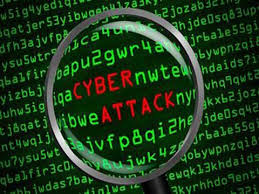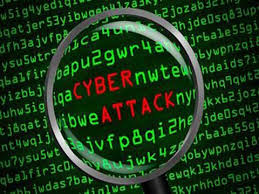
While admitting reports that militants wanted to launch deadly digital attacks., British security forces and spies are building elite cyber offensive forces to strike at Islamic State fighters, hackers and hostile powers, finance minister George Osborne said on Tuesday.
British infrastructure such as hospitals, power networks and air traffic control systems were being reportedly targeted by Islamic State militants and the terrorists want to inflict potentially lethal consequences, Osborne said.
To counter the threat posed to its cyber world by the terrorists, Britain would enhance spending on cyber defenses, simplify its state cyber structures and build its own offensive cyber capability to attack adversaries.
"We will defend ourselves. But we will also take the fight to you," Osborne, Britain's second most powerful politician after Prime Minister David Cameron, said in a speech at Britain's GCHQ eavesdropping agency.
"We are building our own offensive cyber capability – a dedicated ability to counter-attack in cyberspace. When we talk about tackling (Islamic State), that means tackling their cyber threat as well as their guns, bombs and knives," Cameron said.
Individual hackers, criminal gangs, militant groups and hostile powers would be the target of Britain's new cyber attack forces which would be run jointly between GCHQ and the Defence Ministry. Osborne said that the cyber attack forces would use a "full spectrum" of actions.
Started by Winston Churchill, GCHQ traces its history back to World War One signals intelligence. The organization was under the MI6 foreign intelligence service. However in recent years the organization is considered to be one of the world's pre-eminent eavesdropping agencies and enjoys significant influence.
One of the most secret spy agencies in the world, its existence was only officially recognized legally by Britain in the 1990s.
The staff strength at the domestic MI5 security service, MI6 and GCHQ would be increased by about 15 percent, announced the British government after the Paris attacks that killed at least 129 people and were claimed by Islamic State.
While confirming that the decision to ramp up cyber defense funding had been taken before Friday's bloodshed in Paris, Osborne said public spending on cyber security would be almost doubled to a total of 1.9 billion pounds ($2.9 billion) over the period to 2020.
Islamic State was already using the internet for propaganda, to radicalize people and for planning purposes, he added
"They have not been able to use it to kill people yet by attacking our infrastructure through cyber attack. But we know they want it and are doing their best to build it," he said.
While the number of cyber national security incidents had doubled to 200 a month since last year, the GCHQ was currently monitoring cyber threats against 450 companies in aerospace, finance defense, energy and telecoms sectors.
A dedicated force to ensure faster and more effective responses to major online attacks would be developed as a part of the new national cyber security plan drawn up by the government. The force would be based at GCHQ in Cheltenham, southwest England. Possible cooperation between internet service providers, with help from the government would be another element of the plan.
(Source:www.reuters.com)
British infrastructure such as hospitals, power networks and air traffic control systems were being reportedly targeted by Islamic State militants and the terrorists want to inflict potentially lethal consequences, Osborne said.
To counter the threat posed to its cyber world by the terrorists, Britain would enhance spending on cyber defenses, simplify its state cyber structures and build its own offensive cyber capability to attack adversaries.
"We will defend ourselves. But we will also take the fight to you," Osborne, Britain's second most powerful politician after Prime Minister David Cameron, said in a speech at Britain's GCHQ eavesdropping agency.
"We are building our own offensive cyber capability – a dedicated ability to counter-attack in cyberspace. When we talk about tackling (Islamic State), that means tackling their cyber threat as well as their guns, bombs and knives," Cameron said.
Individual hackers, criminal gangs, militant groups and hostile powers would be the target of Britain's new cyber attack forces which would be run jointly between GCHQ and the Defence Ministry. Osborne said that the cyber attack forces would use a "full spectrum" of actions.
Started by Winston Churchill, GCHQ traces its history back to World War One signals intelligence. The organization was under the MI6 foreign intelligence service. However in recent years the organization is considered to be one of the world's pre-eminent eavesdropping agencies and enjoys significant influence.
One of the most secret spy agencies in the world, its existence was only officially recognized legally by Britain in the 1990s.
The staff strength at the domestic MI5 security service, MI6 and GCHQ would be increased by about 15 percent, announced the British government after the Paris attacks that killed at least 129 people and were claimed by Islamic State.
While confirming that the decision to ramp up cyber defense funding had been taken before Friday's bloodshed in Paris, Osborne said public spending on cyber security would be almost doubled to a total of 1.9 billion pounds ($2.9 billion) over the period to 2020.
Islamic State was already using the internet for propaganda, to radicalize people and for planning purposes, he added
"They have not been able to use it to kill people yet by attacking our infrastructure through cyber attack. But we know they want it and are doing their best to build it," he said.
While the number of cyber national security incidents had doubled to 200 a month since last year, the GCHQ was currently monitoring cyber threats against 450 companies in aerospace, finance defense, energy and telecoms sectors.
A dedicated force to ensure faster and more effective responses to major online attacks would be developed as a part of the new national cyber security plan drawn up by the government. The force would be based at GCHQ in Cheltenham, southwest England. Possible cooperation between internet service providers, with help from the government would be another element of the plan.
(Source:www.reuters.com)





